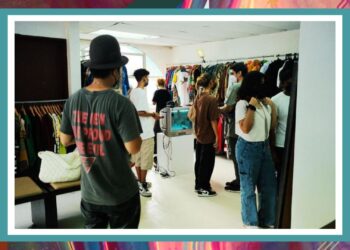An impulse buyer is someone with the proclivity to purchase products and services without prior forethought. When a buyer makes a spur-of-the-moment purchase, emotions and feelings are frequently the driving force. And, it’s often acknowledged that women are prone to be more impulsive in buying things than men.

But contrary to stereotype, not all women are impulse buyers, as some are good budget-savers for themselves and their families. Speaking of buying without forethought – here are four types of impulse-buying behavior:
1. Pure Impulse Purchase – It’s also known as an “escape purchase.” These items could be wrapped in a lovely and welcoming manner, or they could be a magazine with a vibrant cover. People behave emotionally and purchase the thing, even if it is outside of their regular purchasing habits. To put it another way, it’s a typical impulse buy.
2. Suggestion Impulse Purchase – The buyer is still making an impulse purchase, in effect, buying something they don’t need. The explanation gives them the impression that the purchase is based on a reason or a necessity rather than an emotion.
3. Reminder Impulse Purchase – The third form of an impulse buy is triggered by a reminder. The buyer had no intention of purchasing the product, but the way it was displayed at the store (online or offline) prompted them to do so.
4. Planned Impulse Purchase – This type of purchase is frequently prompted by a low price or a special offer. And, once again, the buyer purchases something they do not require or purchases more than they need.

Don’t immediately cancel your credit card after realizing you are an impulse buyer, as some costs, like hospital bills and car repairs, are unforeseen costs, and you might not have the right amount of cash at hand for the payments ASAP.
Experts say impulse buying occurs when we want to treat ourselves, or when we find a wonderful offer, a discount, or a purchasing incentive. It’s okay to treat yourself once a while when you’ve gotten your salary, nevertheless, don’t spend all your money at one go (I’ve done it multiple times, it’s very hard with limited cash available) – have some as back up for emergency needs.

Here are some ways for you to control your impulse buying urges:
Give Yourself a Time Out – Maybe you come across something you’d consider buying? Take a moment and delay your buying. You avoid making a hurried purchase, whether it’s for two hours or two days. After some time has passed between you and your intended purchases, you might realize that you no longer require the item.

Cash > Credit – Since it is psychologically more difficult to hand out cash than it is to hand out a credit card, people tend to spend less when they pay with cash rather than a credit card. Also, if you just have a bit of cash in your wallet, you will think twice before handing it over to a cashier. If it’s tough for you not to use your credit card, just leave it at home.

Reduce Retail Therapy – Shopping is fun, but don’t use it to splurge when you are upset or had broken up from a relationship. However, there are numerous methods for reducing stress. Avoid spending money at all costs by exercising, going for a stroll, listening to music, or having a drink with friends.
Spend Within a Budget – Give yourself a budget range each month, it may be rocky at first, as the impulsive urges are still strong. It is effective and will pay off in the long run. When you are on a budget, always ask yourself – do you want it or do you need it? So there’s no harm in setting aside a little money each month for a fun buy.

Always Remember: impulsive buying in controlled moderation is okay, but don’t forget to record the amount spent on your impulsive sprees to make sure you have enough and are set for the rest of the month.











